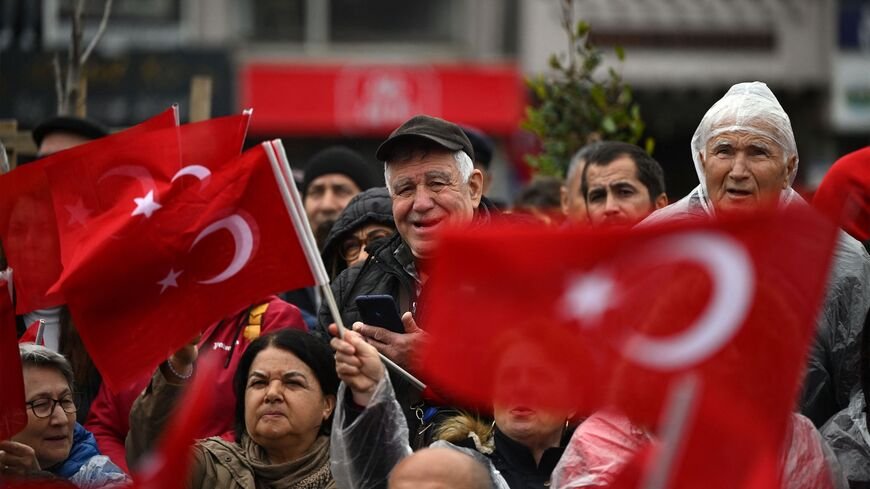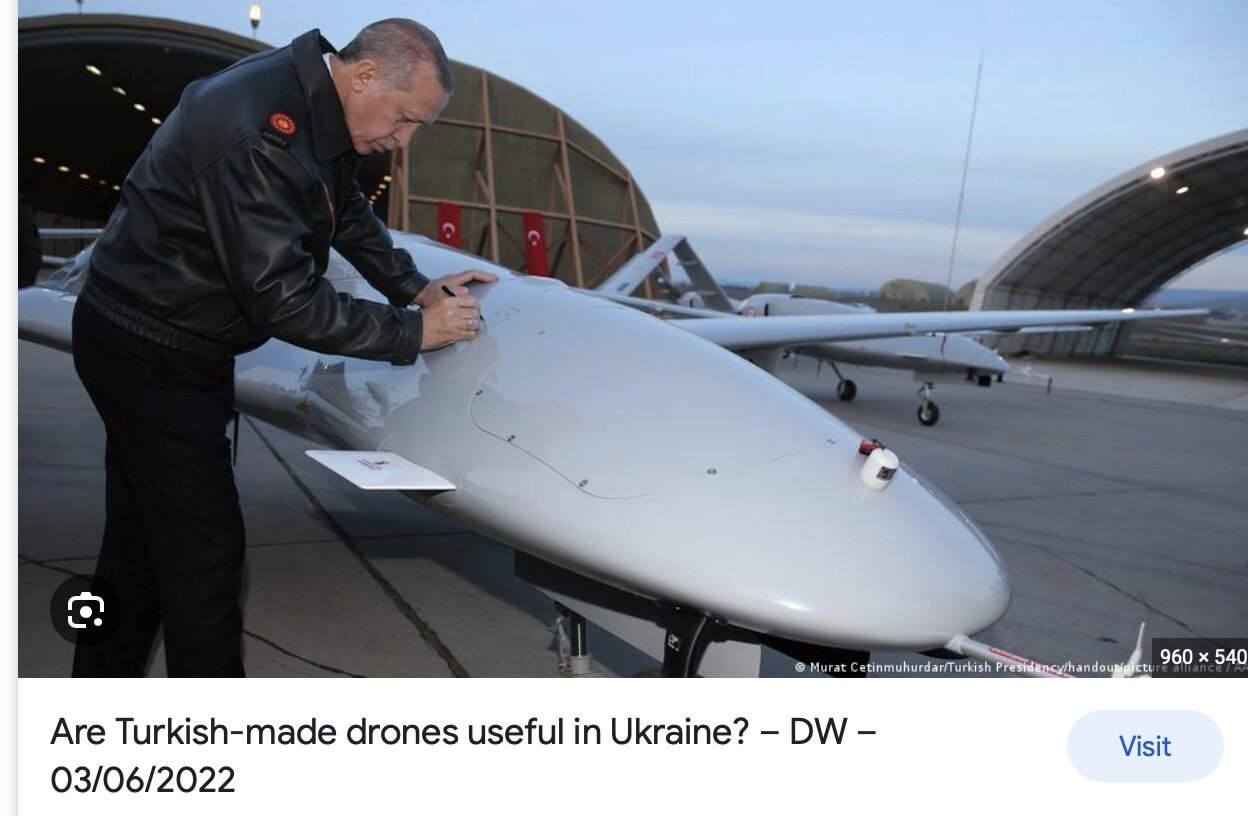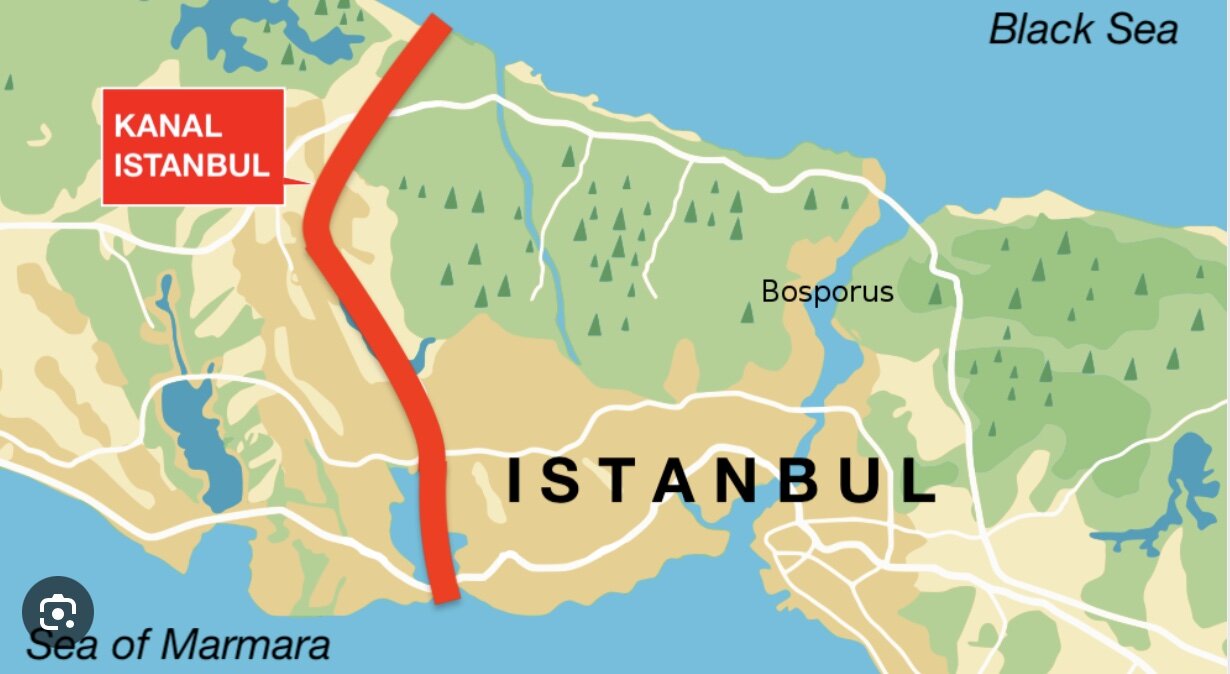الانتخابات الرئاسية التركية، ما يجب معرفته
مع اقتراب الانتخابات الرئاسية تركيا، هذه هي نقاط القوة والتحديات التي تنتظر الرئيس المقبل
على الرغم من الانتكاسات الأخيرة، مثل الزلزال المأساوي في فبراير 2023 الذي أودى بحياة 50 ألف شخص وأزمة التضخم المفرط المستمرة، لا يزال النفوذ الجيوسياسي لتركيا قوياً. هذه القوة متجذرة في مجموعة متنوعة من العوامل الوطنية والدولية
العوامل الدولية
الإبحار في الصراع الروسي الأوكراني
يمثل الصراع المستمر بين روسيا وأوكرانيا مشهدًا معقدًا. في حين أنه قد أثر بشكل كبير على قطاع السياحة في تركيا ، فإنه يوفر أيضًا فرصًا استراتيجية ، لا سيما ضمن سلسلة التوريد الغذائية العالمية. مع كون روسيا وأوكرانيا مصدرين رئيسيين للحبوب، أدت حربهما إلى تصعيد أسعار القمح وتسببت في أزمة غذاء عالمية. هذه الأزمة حادة بشكل خاص في البلدان التي تعتمد على الواردات، مثل مصر ولبنان ومختلف الدول الأفريقية
اقترحت تركيا، وهي لاعب رئيسي في منطقة البحر الأسود ، فتح ممر للحبوب للتخفيف من أزمات الجوع المحتملة في الشرق الأوسط وشمال إفريقيا والصحراء الأفريقية. من خلال وساطة تركيا في مفاوضات ممر الحبوب والدعم العسكري لأوكرانيا، عززت تركيا مكانتها الدولية ونفوذها
صعود القوة الصلبة التركية
اعتمدت استراتيجية تركيا السياسية تقليديًا على التجارة والدبلوماسية والجغرافيا لإظهار القوة وكسب الحلفاء في الخارج. ومع ذلك، كشف عقد من التقلبات التي تلت الربيع العربي في عام 2011 عن قيود القوة الناعمة لتركيا مما أدى إلى التحول إلى سياسة خارجية أكثر حزما
“تضمنت إستراتيجية القوة الصلبة لتركيا زيادة قوتها البحرية في البحر الأسود وبحر إيجه وشرق البحر الأبيض المتوسط ، مع العقيدة المعروفة باسم الوطن الأزرق. كما أبرمت اتفاقيات دفاع مشترك مع دول مثل قطر والصومال والسودان وليبيا
منذ عام 2014 ، خفضت تركيا بشكل كبير وارداتها من الأسلحة الأجنبية مع نضوج صناعتها الدفاعية. بحلول عام 2019 ، جاءت أكثر من 75٪ من مشترياتها الدفاعية من مصادر محلية
تحولت تركيا من ثالث أكبر مستورد للأسلحة في العالم إلى المرتبة 14 في تصدير الأسلحة في غضون 15 عامًا
كان تحول تركيا إلى القوة الصلبة ، رغم أنه ضروري بسبب التهديدات المتزايدة ، مكلفًا وساهم في عجز الحساب الجاري للبلاد ولكن على الرغم من الانكماش الاقتصادي ، استمرت تركيا في زيادة إنفاقها العسكري
أدى السعي وراء الحكم الذاتي الاستراتيجي إلى إحجام الشركاء الغربيين عن مشاركة التكنولوجيا العسكرية مع تركيا مما أدى إلى أزمة مع إدارة ترامب
المواجهة بين الولايات المتحدة وتركيا
شهدت العلاقات مع الولايات المتحدة أيضًا توترًا، لا سيما بعد قرار تركيا شراء بطاريات صواريخ أرض-جو إس -400 من موسكو. أثار هذا القرار انتقادات من الولايات المتحدة وأثار تساؤلات حول دور تركيا داخل الناتو
في عام 2015، طلبت تركيا شراء بطاريات باتريوت للدفاع الجوي ، لكن إدارة أوباما رفضت بسبب مخاوف من نقل التكنولوجيا وسحبت صواريخ باتريوت المتمركزة في تركيا في عام 2015
ونتيجة لذلك ، وقعت تركيا صفقة مع موسكو لشراء بطاريات صواريخ أرض-جو إس -400 مقابل 2.5 مليار دولار
F35بعد هذا الشراء، تم توجيه دعوات لفرض عقوبات في الولايات المتحدة وأثيرت تساؤلات حول دور تركيا في الناتو ، بالإضافة إلى طرد تركيا من برنامج الطائرات
للمفارقة, اليونان العضو أيضًا في الناتو لديها برنامج إس 300
بناء قناة اسطنبول
قناة اسطنبول، مشروع ضخم طموح اقترحه أردوغان ، يهدف إلى ربط البحر الأبيض المتوسط بالبحر الأسود. يقدم المشروع مزايا جغرافية اقتصادية كبيرة، لا سيما أنه يعد بتخفيف الازدحام في مضيق البوسفور وتجاوز القيود التي تفرضها اتفاقية مونترو, وهي معاهدة تنظم مرور السفن العسكرية عبر مضيق البوسفور تمنع السفن العسكرية التي يزيد وزنها عن 15000 طن من الوصول إلى البحر الأسود.
قد يؤدي أي تغييرفي معادلة البحر الأسود إلى تعريض الأمن الروسي للخطر بسبب إمكانية وصول الولايات المتحدة إلى البحر الأسود عبر قناة إسطنبول الجديدة
العوامل الوطنية
ثورة قطاع الطاقة
أعلنت شركة النفط التركية مؤخرًا عن زيادة كبيرة في إنتاج الغاز من حقل ساكاريا ، ومن المتوقع أن تغطي حوالي ربع الاستهلاك السنوي الحالي لتركيا وتقلل بشكل كبير من فاتورة استيراد الطاقة في البلاد البالغة 97 مليار دولار. بالإضافة إلى ذلك ، تم اكتشاف أكبر اكتشاف نفطي بري في البلاد في مقاطعة سيرناك الجنوبية الشرقية ، حيث ينتج البئر حوالي 10000 برميل من النفط يوميًا
مع مزيد من التطوير والحفر التقييمي المخطط له هذا العام ، تهدف شركة البترول التركية إلى الوصول إلى هدف إنتاج طموح يبلغ 100000 برميل يوميًا
الفرص الديموغرافية وتراجع النموذج الصناعي الألماني
وجه الغزو الروسي لأوكرانيا والعقوبات المفروضة على صادرات الغاز الروسي ضربة كبيرة للقطاع الصناعي الألماني
.كانت ألمانيا تعتمد على البتروكيماويات الروسية الرخيصة في عملياتها التصنيعية ، والآن تشتريها من الولايات المتحدة ومصادر أخرى بأربعة أضعاف السعر الأصلي
بالإضافة إلى ذلك ، كانت التركيبة السكانية الألمانية في حالة تدهور ، وهي تعاني من نقص في العمالة مما يمثل فرصة كبيرة لتركيا لتلبية سوق العمل الألماني اضافتا الى جذب المصانع الالمانية الى تركيا للاستفادة من اسعار نفط وغاز ارخص
.يوجد حاليا, 4 إلى 7 ملايين ألماني من أصول تركية في ألمانيا
التحديات المحلية
على الرغم من هذه النجاحات والفرص، تواجه تركيا تحديات محلية كبيرة. وأكثرها إلحاحًا هي "المسألة الكردية"، بالنظر إلى العدد الكبير من السكان الأكراد أكثر من نصف طلاب المدارس أكراد، و١٥ ٪ من الناخبين حاليا. بالإضافة إلى ذلك، يمثل وضع اللاجئين السوريين في البلاد تحديًا آخر يتعين على الرئيس القادم معالجته
في الختام، فإن الانتخابات الرئاسية التركية المقبلة لها تداعيات كبيرة على كل من الأمة والمنطقة. سيتشكل الاتجاه المستقبلي لتركيا من خلال مدى فعاليتها في التعامل مع هذه الديناميكيات الدولية والوطنية المعقدة
Turkish Presidential elections, what you need to know
As we approach Turkey's presidential elections, there are many crucial factors to consider, including the nation's geopolitical standing, potential domestic challenges, and the overall direction for the next decade. Despite recent setbacks, such as the tragic earthquake in February 2023 that claimed 50,000 lives and the ongoing hyperinflation crisis, Turkey's geopolitical influence remains robust. This strength is rooted in a variety of national and international factors.
International Factors
Navigating the Russian-Ukrainian Conflict
The ongoing conflict between Russia and Ukraine presents a complex landscape. While it has significantly impacted Turkey's tourism sector, it also presents strategic opportunities, particularly within the global food supply chain. With Russia and Ukraine being major grain exporters, their war has escalated wheat prices and triggered a global food crisis. This crisis is especially acute in countries reliant on imports, such as Egypt, Lebanon, and various African nations.
Turkey, a key player in the Black Sea region, has proposed opening a grain corridor to alleviate potential hunger crises in the Middle East, North Africa, and Saharan Africa. Through its mediation in the grain corridor negotiations and military support for Ukraine, Turkey has further consolidated its international prestige and influence.
The Rise of Turkish Hard Power
Turkey's political strategy has traditionally relied on trade, diplomacy, and geography to project power and win allies abroad. However, the decade of volatility following the Arab Spring in 2011 exposed the limitations of Turkey's soft power, prompting a shift to a more assertive foreign policy.
Turkey's hard power has been demonstrated through military operations in North Africa, the Eastern Mediterranean, the South Caucasus, the Horn of Africa, the Levant, and the Gulf region. However, this pursuit of strategic autonomy has had economic repercussions, contributing to the country's current account deficit.
Since 2014, Turkey has significantly reduced foreign arms imports as its defense industry matured. By 2019, over 75% of its defense procurements came from domestic sources.
Turkey transformed from the world's third-largest importer of weapons to the 14th biggest arms exporter within 15 years.
Turkey's shift to hard power, while necessary due to rising threats, has been costly and contributed to the country's current account deficit.
Despite the economic downturns, Turkey has continued to increase its military spending.
The pursuit of strategic autonomy has led to a reluctance from western partners to share technology with Turkey which led to the S400 crisis with the Trump administration.
Stand-off with the US
In 2015 Turkey requested the purchase of patriot air defense batteries, however Obama administration refused due to technology transfer concerns and withdrew Patriot missiles stationed in Turkey in 2015.
As a result, Turkey signed a deal with Moscow to purchase its S-400 surface-to-air missile batteries for around $2.5 billion.
After this purchase, calls for sanctions were made in the U.S. and questions were raised about Turkey's role in NATO, in addition Turkey was kicked out of the F35 aircraft program.
(on a side note, Greece which is also a NATO member has an active S 300 program)
Istanbul canal construction:
The Istanbul Canal is a mega project proposed by Erdogan that aims to create a man-made canal that connects the Mediterranean to the Black Sea, paralleling the Bosporus canal.
While it is an ambitious project that comes with a high price tag, but it gives Turkey a big geo-economic advantage due to the speed it offers to shipping companies that are now waiting in the bospurus due to high congestion, and political advantage because it bypasses the Montrreux convention, a treaty that governs the passage of the military vessels through the Bospurus which prevents military ships weighing > 15000 tones from accessing the black sea. Any change in the black sea equation might severally endanger Russian security due to the possibility of US access to the black sea through the new Istanbul canal.
Part II: National Factors
The Energy Sector
Turkish Petroleum AO recently announced a significant increase in gas production from the Sakarya field, expected to cover about a quarter of Turkey's current annual consumption and significantly reduce the country's $97 billion energy import bill. Additionally, the country's largest onshore oil find has been made in the southeast province of Sirnak, where a well is producing about 10,000 barrels of oil per day. With further development and appraisal drilling planned for this year, Turkish Petroleum aims to reach an ambitious production target of 100,000 barrels per day
Demographic Opportunities and the Decline of the German Industrial Model
Germany's dependence on Russian gas exports and its declining demographic present unique opportunities for Turkey. Given the existing Turkish diaspora in Germany (4-7million), Turkey's soft power influence could potentially increase in the coming years.
Domestic Challenges
Despite these successes and opportunities, Turkey faces significant domestic challenges. The most immediate of these is the "Kurdish question", given the substantial Kurdish population. Additionally, the situation of Syrian refugees in the country presents another challenge that the incoming president will need to address.
In conclusion, the upcoming Turkish presidential election holds significant implications for both the nation and the region. Turkey's future direction will be shaped by how effectively it navigates these complex international and national dynamics.







